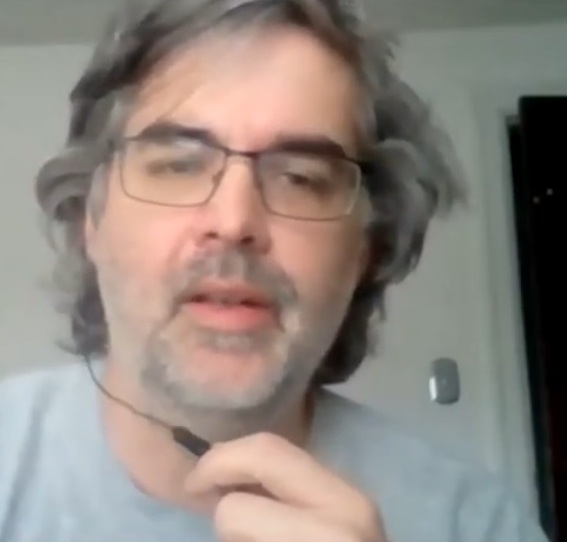A member of Payday speaks as caregiver
Eric Gjersten, 8 March 2022
Speech at the The Global Women's Strike Webinar launching the International Survey What Do Mothers and other Carers Want?

Thank you for inviting me to speak today, I have learned so much from the testimonies of all the women on this amazing panel and have to begin by honoring all women caregivers on this international women's day, starting with my own mother.
My partner Tonya and I took care of her mother, who was in her eighties, in her own home, until she passed away in 2017. She had been seriously injured in a car accident in 2010, and had lasting physical and cognitive trauma that meant she needed 24-hour support for daily activities: personal care, keeping a calendar, cooking, cleaning, finances, transportation, and much more. Despite having the crucial supports of home health workers a few hours a week and an adult day program, we were often overwhelmed with the stresses of being ultimately responsible for another human being 24/7 -- particularly my partner, who was her primary caregiver. Like many women facing the "double day", I often felt that my waged work was the easier and less stressful of my jobs.
We did not receive any money for this work. There is a little money available for family caregivers now from the state, but much less than is paid for home health workers, who receive horrible wages and few benefits. If we want to make it possible for more people to choose to do this work, particularly men who have relied on women to do this work, we have to confront the fact that when you set out to truly care for a loved one, particularly someone vulnerable to abuse as an older person with disabilities, you soon find yourself in a struggle against an industry that prioritizes making money off the people they are supposed to care for and off us. This, more than anything else, was what I remember as the source of the stress in our lives. The industry has an army of agents, including many lawyers, doctors, social workers, even our own family members, who think they know better than us "non-professionals". We had to constantly negotiate to protect our mother's ability to make her own fundamental decisions. Luckily, there were some advocates -- who Tonya had to search high and low to find -- who actually supported caregivers and the rights of those with dementia.
Caring changes you. And men who do this caregiving work can learn what mothers know – how to put the needs of others before your own; it is hard work but it is also rewarding and liberating. In Payday we focus on opposing the death and destruction caused war and militarism – the opposite of caring for life.
This survey could give us crucial leverage in this struggle by exposing this work, what we want for it, and helping us get it. Many more of us would be able to choose to do this life-giving work providing a better alternative to the nursing home industry and adding years of life to caregivers and their loved ones alike. Thank you.